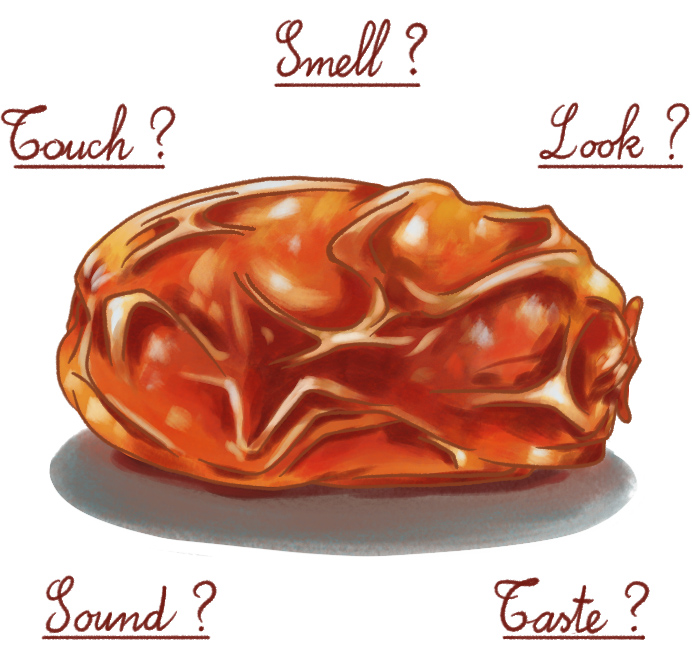





Chapter 6. Mindful Awareness Copy

“The next two tools use mindfulness. Have you heard much about that?”
“No, not really,” Nelson says as he scratches his left nostril.
“Mindfulness means being in the present moment. When we get anxious, we often get distracted. We worry about what happened in the past, or what’s going to happen in the future. In mindfulness, we only focus on what’s happening right now, without making judgments about whether things are good or bad. You don’t have to think about all those other things.”
You pause. Nelson has stopped scratching, absorbed.
“Does that make sense?”
He makes a confused face. “What do you mean, exactly, by being in the present moment?”
“Let me give you an example,” you say. “Let’s say it’s lunchtime, and I have all these emails I have to answer. I just had a weird conversation with my boss, and I’m like, ‘What the heck did she mean?’ I can’t enjoy my lunch because I can’t stop thinking about all those things.”
You pause again. Nelson’s attention is fixed on you.
“Mindfulness just means that I can let those thoughts be, and I can instead focus on enjoying my lunch and all the sensations that come with it. Mindfulness shifts our focus to feel the current things and helps us be less stressed.”
“I see,” Nelson says with a slow nod. “So it’s a matter of just being more aware of whatever’s around you.”
“That’s right,” you beam. “And to learn mindfulness, we’ll do two exercises. The first is with food.”
Nelson laughs and fiendishly rubs his hands together. “Excellent!”
You chuckle involuntarily. “Do you want to work with chocolate or raisins?”
“Raisins are good. I like raisins.”
“Ooh! Not many people I know would choose raisins over chocolate!”
You pull out a small box from a nearby desk drawer. The raisins rattle in the box as you open it and place a single raisin in his palm. He raises the raisin up with his fingers, looking a little disappointed.
“They sure are tiny, aren’t they?” he thinks out loud.
“They sure are,” you chuckle again. “Nelson, that right there is a good example of being mindful of your surroundings. But let’s take a step back before we get ahead of ourselves. I want you to use all of your senses to describe the raisin. Pretend I’m an alien from a different planet. I don’t know what a raisin is, I’ve never seen one before. With that in mind, describe it to me. Let’s start with sight.”
Nelson holds the raisin back up in front of his face.
“Examine it. Tell me all you can about it, just by looking at it. What do you see?”
“I see…” He scrunches his forehead and narrows his eyes. “It’s small, and oval. It has…” He holds the raisin up in his left palm. “An uneven surface.”
Nelson pauses.
“What…” you ask as you gesture with your hands, “color is it?”
“Sort of, brownish.”
“Okay, good. What about touch? Feel the raisin. Tell me how it feels.”
Nelson rolls the raisin between his thumb and index finger, then fiddles with it in his other hand. “It’s pretty soft. A little bit bumpy.”
“Anything else you feel?”
Nelson squints at the raisin and holds it closer to his face.
“Nelson,” you caution, “try to tell me what you’re feeling through touch, not what you’re seeing.”
“Oh, okay.” Nelson looks towards the ceiling and closes his eyes, while his fingers continue rubbing the raisin. “I feel…a little piece of branch.”
“And how does it feel?”
“Umm…” His fingers rub and rub. “Prickly.”
“Great. Now smell the raisin. Describe how it smells.”
Nelson looks at the slightly worn raisin in between his fingers. He chuckles under his breath, shrugs, and then holds it up to his nose.
“Oh!” He inspects the raisin once more. “Smells kind of nice. Like a raisin, you know.”
You laugh. “But if I’m an alien and I don’t know what a raisin is, how would you describe the smell? Does it smell sweet, bitter, sour?”
Nelson laughs, too. “Sweet, I guess. Not sweet like chocolate, more like…cinnamon.”
“That’s great,” you say with a nod. “Now move it around in your fingers again. And tell me the sound it makes.”
He raises the raisin next to his right ear and rubs it. “It…cracks a bit. It’s got a rough sound to it.” He drops his hand and looks at the raisin in his fingers. “But maybe that’s just how my fingers sound.”
“Okay, now put the raisin on your tongue. Don’t chew it or swallow it, but notice the sensation. How does it taste?”
Nelson places the raisin on his tongue. His cheeks bump in and out as he rolls the raisin around on his tongue like a gumball.
“Then slowly chew it, and swallow. Notice what the feeling is when it’s in your mouth.”
Once he is finished, Nelson licks his lips and smacks his mouth. “It’s tasty, and chewy. A bit sticky.”
“How would you describe the taste?”
“It tastes like…” Nelson licks his lips again. “Like a raisin! I don’t know, umm…” He laughs and ponders for a beat longer. “Maybe like a sour grape?”
You nod methodically. “Nelson, what you just did is one type of mindfulness exercise called ‘mindful awareness’, which focuses on our senses. Remember earlier we used the feelings thermometer to talk about how sometimes you don’t feel anything, that you feel numb?”
A twinkle of understanding appears in Nelson’s eye.
“Mindfulness,” you continue, “is a good way to bring you back to the present, especially if you’re feeling detached.”
Nelson’s head bobs up and down in excitement.
“What do you notice after this exercise?”
“It definitely feels like I’m more aware of what’s going on!” he exclaims. “I noticed things about raisins that I hadn’t ever thought about before, like how it feels and what it smells like.”
You lean forward in your seat. “And what about what was making you anxious?”
“I forgot completely about that!” Nelson guffaws and slaps his forehead. “I was so focused on the raisin so I wasn’t even thinking about anything else.”
Your smile couldn’t be wider. “Now isn’t that pretty cool?”
